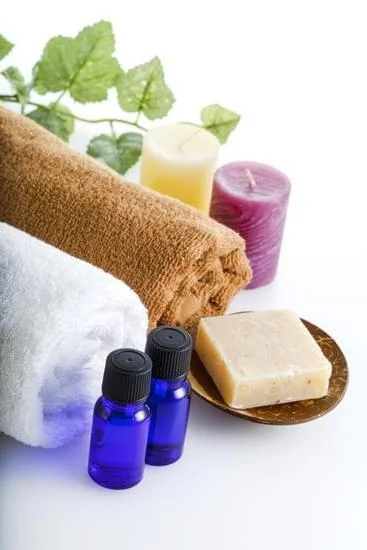Eucalyptus essential oil aromatherapy is known for its versatile benefits and has been used for centuries to promote health and well-being. This article delves into the various advantages of eucalyptus essential oil, including respiratory relief, improved cognitive performance, natural decongestant properties, soothing sore muscles and joints, immune boosting benefits, relaxation and stress relief, among others.
Eucalyptus essential oil has a rich history and cultural significance that dates back centuries. Its origins can be traced back to Australia, where the eucalyptus tree is native. The oil is extracted from the leaves of this tree through a process of steam distillation. Eucalyptus has been widely used by indigenous cultures for its medicinal properties and is now popular all over the world.
The science behind eucalyptus essential oil reveals its composition and unique properties that contribute to its numerous health benefits. Eucalyptol, the main component of eucalyptus oil, possesses anti-inflammatory and antimicrobial properties that make it effective for respiratory issues such as coughs, colds, and congestion. Additionally, the refreshing scent of eucalyptus also helps promote mental clarity and focus.
In this article, we will explore how eucalyptus essential oil aromatherapy can provide respiratory relief, improve cognitive performance, act as a natural decongestant, soothe sore muscles and joints, boost the immune system, create a serene environment for relaxation and stress relief. We will also provide recipes and DIY ideas on how to incorporate eucalyptus essential oil into your daily life to enjoy its numerous benefits.
Understanding the Origins of Eucalyptus Essential Oil
Eucalyptus essential oil has a rich history and cultural significance that dates back centuries. Originating from Australia, the eucalyptus tree is a prominent symbol in Aboriginal culture and has been used for its medicinal properties for generations. The indigenous people of Australia have long recognized the healing powers of eucalyptus leaves and oil, using them to treat various ailments and promote overall wellness.
The Aboriginal Connection
Eucalyptus has played a significant role in Aboriginal culture, with the tree holding great spiritual significance. It is believed to possess protective qualities, providing strength and resilience to those who embrace its energy. In addition, eucalyptus was commonly used for its antimicrobial properties as an herbal remedy. The leaves were crushed and applied topically to wounds to prevent infection and aid in healing.
European Influence
The discovery of eucalyptus by European settlers in Australia led to its introduction into Western medicine in the 18th century. Doctors began incorporating eucalyptus essential oil into their practices, recognizing its potential therapeutic benefits. Its antiseptic, anti-inflammatory, and expectorant properties made it particularly valuable in treating respiratory conditions such as asthma, bronchitis, and congestion.
The popularity of eucalyptus essential oil quickly spread beyond Australia’s shores, becoming an important ingredient in pharmaceutical products around the world. Over time, it also gained recognition in aromatherapy and natural wellness practices due to its invigorating scent and wide range of health benefits.
Cultural Significance
Beyond its medicinal uses, eucalyptus holds cultural significance beyond Australia. In many cultures around the world, eucalyptus branches are used as symbols of protection and purification during rituals and ceremonies. Its distinct aroma is often associated with cleanliness, freshness, and vitality.
The Science Behind the Scent
Eucalyptus essential oil, derived from the leaf of the eucalyptus tree, has been used for centuries for its healing properties. To fully understand the benefits of eucalyptus essential oil aromatherapy, it is important to explore its composition and properties.
Composition
Eucalyptus essential oil is known for its distinct and refreshing scent. This scent comes from a variety of compounds found within the oil. The main components of eucalyptus essential oil include eucalyptol, alpha-pinene, limonene, camphor, and globulol. Each compound contributes to the overall therapeutic effects of the oil.
Properties
Eucalyptus essential oil possesses several beneficial properties that make it a valuable addition to aromatherapy. It has antibacterial, antifungal, antiviral, anti-inflammatory, and expectorant properties. These properties work together to provide relief from various ailments and promote overall well-being.
The antibacterial and antifungal properties of eucalyptus essential oil make it effective in treating respiratory conditions such as bronchitis and sinus infections. It helps kill bacteria and fungi that may be causing these infections and reduces inflammation in the airways.
Additionally, eucalyptus essential oil acts as an expectorant by loosening phlegm and mucus in the respiratory tract, making it easier to cough out. This makes it a popular choice for individuals with coughs or congestion caused by colds or allergies.
Another notable property of eucalyptus essential oil is its ability to reduce inflammation. This makes it useful in relieving muscle soreness and joint pain. Applying diluted eucalyptus essential oil topically can provide analgesic effects, reducing discomfort and promoting relaxation.
Overall, understanding the composition and properties of eucalyptus essential oil provides insight into why it is beneficial for various health concerns. By harnessing the power of these components, eucalyptus essential oil aromatherapy can provide relief and support for respiratory health, cognitive performance, immune function, and more.
Respiratory Relief
Eucalyptus essential oil aromatherapy has long been recognized for its ability to soothe and support respiratory health. The unique composition of eucalyptus oil makes it a powerful tool in providing relief for various respiratory conditions.
One of the main reasons eucalyptus essential oil is effective in respiratory relief is due to its expectorant properties. It helps to loosen mucus and phlegm, making it easier to expel from the respiratory system. This can be particularly beneficial for individuals suffering from conditions such as bronchitis, asthma, or the common cold.
To use eucalyptus essential oil aromatherapy for respiratory relief, there are several methods you can try:
- Inhalation: Adding a few drops of eucalyptus essential oil to a bowl of hot water and inhaling the steam can help clear nasal passages and relieve congestion. You can also add a few drops to your bath or shower to create a similar effect.
- Diffusion: Using an essential oil diffuser, you can disperse the aroma of eucalyptus oil throughout your home or workspace. Breathing in this aromatic mist can have a soothing and decongesting effect on the respiratory system.
- Topical Application: Diluting eucalyptus essential oil with a carrier oil such as coconut or almond oil and applying it to your chest can provide targeted relief for coughs, congestion, and other respiratory symptoms.
It’s important to note that while eucalyptus essential oil aromatherapy can provide significant respiratory relief, it should not replace medical treatment or professional advice. If you have any underlying health conditions or concerns about your respiratory health, it’s always best to consult with a healthcare professional before using any complementary therapies like aromatherapy.
Mental Clarity and Focus
Eucalyptus essential oil is not only known for its respiratory benefits but also for its ability to enhance mental clarity and focus. The refreshing scent of eucalyptus can have a positive impact on cognitive performance, making it an excellent choice for those seeking improved concentration and productivity.
One of the main reasons why eucalyptus essential oil is effective in boosting mental clarity is its composition. The oil contains compounds such as 1,8-cineole, which has been shown to have cognitive-enhancing effects. Research suggests that inhaling eucalyptus essential oil may increase blood flow to the brain, improving alertness and overall cognitive function.
In addition to its direct effects on the brain, eucalyptus essential oil can also indirectly improve cognitive performance by reducing stress and anxiety. The aroma of eucalyptus has been found to have calming properties, which can help alleviate mental strain and promote a sense of relaxation. By creating a more serene environment, eucalyptus essential oil can support better focus and concentration.
| Benefit | Data |
|---|---|
| Cognitive enhancement | Inhalation of eucalyptus essential oil may increase blood flow to the brain, improving alertness and cognitive function. |
| Stress reduction | The aroma of eucalyptus essential oil has calming properties, helping reduce stress and anxiety. |
| Enhanced focus and concentration | Promoting relaxation with eucalyptus essential oil can contribute to better focus and concentration. |
Natural Decongestant
Eucalyptus essential oil has long been recognized for its ability to alleviate respiratory issues and provide relief from congestion. The powerful properties of this oil make it an effective natural decongestant. When used in aromatherapy, eucalyptus essential oil can help to clear nasal passages, reduce inflammation, and promote easier breathing.
The Power of Eucalyptol
One of the main components of eucalyptus essential oil is a compound called eucalyptol, which possesses expectorant and mucolytic properties. These properties enable the oil to break down mucus and phlegm that may be causing congestion in the respiratory system. By doing so, eucalyptus essential oil helps to open up airways and improve overall respiratory function.
Steam Inhalation for Congestion Relief
One popular method for using eucalyptus essential oil as a natural decongestant is through steam inhalation. To do this, simply add a few drops of eucalyptus essential oil to a bowl of hot water. Place a towel over your head and breathe deeply, allowing the steam infused with the aroma of eucalyptus to clear your sinuses and ease congestion.
Aromatic Diffusion for Continuous Relief
Another way to benefit from the decongestant properties of eucalyptus essential oil is through aromatic diffusion. This involves using an essential oil diffuser or adding a few drops of the oil to a tissue or cotton ball and inhaling the scent directly. Diffusing eucalyptus essential oil throughout your home or office can help maintain clear nasal passages and reduce congestion on an ongoing basis.
In summary, incorporating eucalyptus essential oil into your aromatherapy routine can provide natural relief from stuffy noses and congestion. Whether through steam inhalation or aromatic diffusion, the decongestant properties of eucalyptus essential oil help to clear the airways, reduce inflammation, and promote easier breathing. By utilizing this powerful natural remedy, you can defy congestion and breathe more freely.
Soothing Sore Muscles and Joints
Eucalyptus essential oil aromatherapy has long been utilized for its analgesic properties, making it a popular choice for soothing sore muscles and joints. The active components in eucalyptus essential oil, such as eucalyptol and menthol, have been found to possess anti-inflammatory and pain-relieving effects. These properties make eucalyptus essential oil an excellent natural remedy for alleviating discomfort associated with muscle aches, joint pain, and other common ailments.
When applied topically, eucalyptus essential oil stimulates blood circulation in the affected area, which can help reduce inflammation and promote healing. Its cooling sensation also acts as a numbing agent, providing temporary relief from pain. Additionally, eucalyptus essential oil can help relax tense muscles and improve joint mobility.
To effectively utilize eucalyptus essential oil for soothing sore muscles and joints, there are several methods that can be employed:
- Massage: Dilute a few drops of eucalyptus essential oil in a carrier oil such as coconut or jojoba oil and gently massage it onto the affected area. This not only helps to deliver the therapeutic benefits directly to the muscles and joints but also promotes relaxation.
- Bath soak: Add a few drops of eucalyptus essential oil to warm bathwater along with Epsom salts to create a soothing soak for tired muscles and achy joints. The combination of warm water, aromatic steam, and the beneficial properties of eucalyptus essential oil can provide much-needed relief.
- Compress: Make a compress by adding a few drops of eucalyptus essential oil to hot or cold water (depending on your preference) and soaking a clean cloth in the mixture. Apply the compress directly to the affected area for 10-15 minutes to help reduce inflammation and relieve pain.
It’s important to note that while eucalyptus essential oil can provide temporary pain relief, it is not a substitute for medical treatment. If you have chronic or severe pain, it is advisable to consult with a healthcare professional for proper diagnosis and treatment options.
Immune Boosting Benefits
Eucalyptus essential oil aromatherapy has been recognized for its immune boosting benefits, offering a natural way to enhance the body’s defense mechanism. This section will explore the properties and uses of eucalyptus essential oil in supporting a healthy immune system.
One of the key components of eucalyptus essential oil that contributes to its immune boosting properties is its antimicrobial activity. Eucalyptol, a major compound found in eucalyptus oil, has been shown to have antimicrobial effects against various pathogens, including bacteria and viruses. By incorporating eucalyptus essential oil into your aromatherapy routine, you can help protect yourself from common illnesses such as colds and flu.
In addition to its antimicrobial properties, eucalyptus essential oil also possesses anti-inflammatory and antioxidant properties. Inflammation is the body’s natural response to infection or injury, but chronic inflammation can weaken the immune system. Eucalyptus essential oil can help reduce inflammation and oxidative stress in the body, which can support overall immune health.
To incorporate eucalyptus essential oil into your daily life for immune boosting benefits, there are several methods you can try. One option is to add a few drops of eucalyptus oil to an aromatherapy diffuser and let the scent fill the room. You can also create a DIY chest rub by diluting eucalyptus oil with a carrier oil such as coconut or jojoba oil and applying it to your chest and throat area.
Creating a Serene Environment
Eucalyptus essential oil aromatherapy is not only beneficial for physical health, but it also has powerful properties that can promote relaxation and stress relief. Creating a serene environment with the help of eucalyptus essential oil can have a profound effect on overall well-being and mental clarity.
One of the primary ways to utilize eucalyptus essential oil for relaxation is through diffusing it in a room. The pleasant scent of eucalyptus can create a calming atmosphere, reducing feelings of anxiety and stress. A study published in Evidence-Based Complementary and Alternative Medicine found that participants who were exposed to eucalyptus oil aroma experienced significant improvements in their mood compared to those in the control group.
Another way to use eucalyptus essential oil for relaxation is by adding it to bathwater. The warm water combined with the soothing aroma of eucalyptus creates a spa-like experience that helps relax both the mind and body. The steam from the bath also allows for easy inhalation of the oil, providing additional respiratory benefits while promoting a sense of calm.
In addition to diffusion and baths, eucalyptus essential oil can also be used as part of massage therapy. When diluted with a carrier oil such as coconut or jojoba oil, eucalyptus can be applied topically to help soothe tense muscles and release tension. The combination of the aromatic scent and the therapeutic massage can greatly enhance relaxation and provide relief from stress-related symptoms.
Utilizing eucalyptus essential oil aromatherapy for relaxation and stress relief is a natural and effective way to improve overall well-being. Whether through diffusion, baths, or massage therapy, incorporating this versatile oil into daily routines can create a serene environment that supports mental clarity and fosters a sense of peace and tranquility.
| Method | Benefits |
|---|---|
| Diffusion | – Creates a calming atmosphere
|
| Baths | – Provides a spa-like experience
|
| Massage therapy | – Relieves tense muscles and tension
|
Eucalyptus Essential Oil Aromatherapy Recipes and DIY Ideas
Adding eucalyptus essential oil to your daily routine can bring numerous benefits to your health and well-being. In this section, we will explore different ways you can incorporate this versatile oil into your life through recipes and do-it-yourself (DIY) ideas.
One popular way to utilize eucalyptus essential oil is by creating a homemade shower steamers or bath bombs. These products release the invigorating scent of eucalyptus when exposed to water, creating a spa-like experience in the comfort of your own home. To make shower steamers, combine baking soda, citric acid, cornstarch, and a few drops of eucalyptus essential oil.
Shape the mixture into small discs and allow them to dry. When you’re ready for an uplifting shower experience, simply place one steamer on the floor of your shower.
Another DIY idea is to make a soothing eucalyptus linen spray. This can be sprayed on your bed sheets, pillows, or even clothing to create a calming environment and promote better sleep. To make the spray, mix distilled water with witch hazel or vodka as a base, then add several drops of eucalyptus essential oil. Transfer the mixture into a spray bottle and shake well before each use.
Lastly, you can create a refreshing eucalyptus room spray to freshen up any space in your home. Simply combine water with a few drops of eucalyptus essential oil in a spray bottle and shake before each use. This room spray not only adds a pleasant scent but also helps purify the air and promote respiratory health.
| DIY Idea | Benefits |
|---|---|
| Shower Steamers | Invigorating and spa-like shower experience |
| Linen Spray | Promotes better sleep and creates a calming environment |
| Room Spray | Freshens the air, purifies the space, and supports respiratory health |
Incorporating eucalyptus essential oil into your daily life is not only beneficial for your physical health but also enhances your overall well-being. Whether it’s through homemade shower steamers, linen sprays, or room sprays, you can enjoy the uplifting aroma and therapeutic properties of eucalyptus essential oil. Experiment with these recipes and DIY ideas to find what works best for you and start embracing the numerous benefits of eucalyptus essential oil aromatherapy in your daily routine.
Conclusion
In conclusion, the numerous benefits of eucalyptus essential oil aromatherapy make it a valuable addition to anyone’s daily life. From its rich history and cultural significance to its composition and properties, eucalyptus essential oil has proven itself to be a versatile and powerful tool for enhancing health and well-being.
One of the standout advantages of eucalyptus essential oil aromatherapy is its ability to soothe and support respiratory health. The oil’s natural decongestant properties work wonders in relieving stuffy noses and congestion, making it an excellent choice for those suffering from respiratory issues or allergies.
Additionally, eucalyptus essential oil can help improve cognitive performance by promoting mental clarity and focus. Whether you need to tackle a demanding work project or simply want to enhance your everyday productivity, incorporating this oil into your routine can provide a much-needed boost.
Another notable benefit of eucalyptus essential oil aromatherapy is its analgesic abilities. When applied topically, the oil has been found to effectively soothe sore muscles and joints, providing relief from discomfort caused by exercise or injury. In addition, eucalyptus essential oil can strengthen the body’s defense mechanism by boosting the immune system. Regular use of this oil can help fortify your body against common illnesses and promote overall wellness.
Finally, utilizing eucalyptus essential oil aromatherapy can create a serene environment that facilitates relaxation and stress relief. Its refreshing scent has a calming effect on the mind and body, helping to reduce anxiety and promote a sense of tranquility. By incorporating this versatile oil into your daily life through various recipes and DIY ideas, you can fully embrace the numerous benefits that eucalyptus essential oil brings for a healthier and happier life.
Frequently Asked Questions
What is eucalyptus aromatherapy oil used for?
Eucalyptus aromatherapy oil is known for its numerous benefits and is commonly used for various purposes. One of the main uses of eucalyptus oil is in aromatherapy as it has a refreshing and invigorating scent. It can be diffused or added to bathwater to create a calming and relaxing atmosphere.
Additionally, eucalyptus oil is often utilized for respiratory relief due to its decongestant properties. It can be inhaled or applied topically to help alleviate congestion, coughs, and cold symptoms. Furthermore, it is frequently found in natural cleaning products as it possesses antimicrobial properties.
What happens when you rub eucalyptus oil under your feet?
When you rub eucalyptus oil under your feet, several effects can occur. Firstly, due to the presence of menthol-like compounds in eucalyptus oil, a cooling sensation may be experienced. This can provide relief from tiredness or discomfort after a long day on your feet.
Additionally, massaging the feet with eucalyptus oil may promote relaxation and reduce stress levels as the scent helps uplift mood and soothe the mind. Some people also believe that applying eucalyptus oil to the soles of the feet can support overall respiratory health by allowing absorption into the bloodstream through foot reflexology points.
What are the cons of eucalyptus essential oil?
While eucalyptus essential oil offers many benefits, there are some potential cons to consider before using it. Firstly, undiluted eucalyptus oil may cause skin irritation or allergic reactions in certain individuals, especially those with sensitive skin. Therefore, it’s important to dilute it properly with a carrier oil before applying it topically.
Moreover, ingesting eucalyptus oil should be avoided as it can be toxic if swallowed in large amounts. Pregnant women and children should exercise caution when using this essential oil as its strong aroma and chemical composition might not be suitable for their specific needs. Lastly, as with any essential oil, it’s advisable to do a patch test before using eucalyptus oil regularly to check for any adverse reactions or sensitivities.

Are you looking for a natural way to improve your health and wellbeing?
If so, aromatherapy may be the answer for you.





